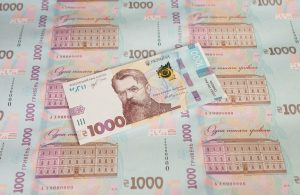
Ukrainian President Volodymyr Zelensky has said he will do his best to provide domestic businesses with cheap loans.
The president’s press service reported that on Friday the head of state met with farmers in Kherson region and the latter again complained about high interest rates for loans.
“The interest rates have been reduced to 8-10% per annum, but this is not enough to do business in a normal way. We understand everything and we will tackle the issue. At least the national banks will work for domestic entrepreneurs,” Zelensky said.
He recalled that the Affordable Loans at 5-7-9% program has already been launched and it will be improved.
“We are doing the utmost to provide [interest rates at the level of] 5-7-9%. I came from business, we took [loans] at 18-25% and that was terrible. The figures I am speaking about – we are doing our best to ensure these figures. And we will win,” the president said.
The entrepreneurs also touched upon the issue of cutting the VAT rate for a range of farming products, including livestock products.
Winemakers suggested the head of state to develop a comprehensive development program for winemaking.
Head of Kherson Regional State Administration Yuriy Husiev asked the entrepreneurs to collect their proposals and send them to the government so that it can develop a support program.
“We will consider the issue. Let’s send them [the proposals] to the government and the President’s Office – we’ll consider them simultaneously,” Zelensky said.

TAScombank and Raiffeisen Bank Aval (both are located in Kyiv) signed an agreement with the Entrepreneurship Development Fund on Thursday, May 14, on participation in the Affordable Loans 5-7-9% government program to support small and medium-sized businesses, Director of the Entrepreneurship Development Fund Ruslan Hashev has said.
“Today we sign agreement with two new banks. These are TAScombank under 5-7-9% rates and Raiffeisen Bank Aval as participants,” he said during a roundtable conference of the Financial club on Thursday.
Hashev said that as of May 14, due to frequent refusals from banks, just 452 loans were issued under the Affordable Loans 5-7-9% program. The main reasons for the refusals were the non-compliance of the borrowers with the criteria of the program or the requirements of banks, as well as the previous ban on combining different types of support.

Ukrainian banks in the fourth quarter of 2019 reduced interest rates on hryvnia loans for businesses by 2.4 percentage points (p.p.), to 15.7% per annum, following a reduction in the refinancing rate by the National Bank of Ukraine (NBU). According to the banking sector survey posted on the National Bank’s website, the reduction in the cost of hryvnia loans for individuals was less noticeable: in the fourth quarter of 2019 the rates fell by 0.5 percentage points, to 33.6% per annum.
At the same time, according to the document, the rates on foreign currency loans to business entities are at a historically low level of 4.6% in December 2019.
The report also notes that the rates on deposits of individuals began to decline only in December, following the reduction in rates by state banks.
“During the year, state banks kept deposit rates at a high level due to inertia in the management of liabilities and assets and legal risks of PrivatBank,” the document says.
So, according to the report, the value of 12-month hryvnia deposits of individuals in the fourth quarter of 2019 decreased by 0.7 percentage points, to 15.1% per annum, in January 2020 it continued to decline by 1.1 percentage points, and in the first week of February by another 1 percentage point, to 13% per annum.
At the same time, the value of 12-month household deposits in U.S. dollars for the fourth quarter of 2019 decreased by 0.6 percentage points, to 2.6% per annum, and in 2020 by another 0.7 percentage points.
In addition, according to the document, the cost of hryvnia funds of corporations during the fourth quarter of 2019 fell by 2.7 percentage points, to 10.3% per annum.

The volume of non-performing loans (NPL) in state-owned banks fell by UAH 22 billion in January-June 2019, and their share of the loan portfolio decreased to 65%, according to a second report of the Finance Ministry on the state of work with NPL published within a regular and detailed report on operations of state-owned banks.
“Compared to January 1, 2019, the volume of NPLs in state-owned banks decreased by UAH 22 billion, to UAH 415 billion, and their share of the loan portfolio decreased by 2.5 percentage points, to 65%,” the ministry said in the report.
According to the results of the first half of the year, public sector banks reduced overdue debts by UAH 3.5 billion and carried out restructuring for UAH 10.6 billion.
Banks of the public sector restructured a total of about UAH 11 billion, of which 47% (UAH 5 billion) under the law on financial restructuring. In the first half of the year, Oschadbank successfully completed the financial restructuring procedures with TMM Firm LLC, Imperovo Foods LLC, PJSC Avangard agroholding, and PJSC Rise-Maksymko. Two cases of financial restructuring for companies of the WOG group have been opened. In addition, Ukreximbank opened its first financial restructuring case with Office Construction Agency LLC, which has become one of the largest in terms of debt to be restructured.
The share of the NPL of the banking system as of July 1, 2019 was 51%, or UAH 581 billion.

The share of companies planning to attract loans in the next 12 months has reached 41.5% in the second quarter of 2019 compared to 38.2% a quarter earlier, according to the results of a regular survey of enterprises’ business expectations announced by the National Bank of Ukraine (NBU). The largest share of such companies accounted for the manufacturing industry, those of energy and water supply, the document says.
According to the survey, enterprises, as before, prefer loans in the national currency: their share increased to 79.1% in the second quarter compared to 78.1% in the first quarter.
The National Bank noted that large enterprises, as well as those companies that conduct export-import operations are more inclined to attract loans in foreign currency.
At the same time, the share of respondents planning to attract foreign loans rose in the market up to 10.4% in the second quarter compared to 9.7% in the previous quarter.

The Kyiv City Council at a meeting on Thursday approved the attraction of a loan of EUR 110 million from the European Bank for Reconstruction and Development (EBRD) to buy rolling stock under the Kyiv City Public Transport Project II.
According to the decision, municipal enterprise Kyiv Metropoliten will receive a loan of EUR 50 million at 6% per annum and the period of up to 12 years, including the two year grace period for paying the principal of the loan. Municipal enterprise Kyivpastrans will receive EUR 60 million for the period of up to 13 years at 6% per annum, including the three year grace period.
As reported, Kyiv city after Lviv has become the second city in Ukraine and 21st in the region, which joined the Green Cities Project of the EBRD.
According to a press release of the Kyiv City Administration issued the signing of the memo, the city plans to use this programme to implement projects for the renewal of the Kyivpastrans and Kyiv Metropoliten’s fleet with new buses, trolleybuses and subway cars, as well as a comprehensive reconstruction of the tram line and the Kontraktova Ploscha stop and overhaul of the Metro Bridge.
Recently, the EBRD Credit Committee approved the concept of projects for an estimated total cost of EUR 320 million, Kyiv Mayor Vitali Klitschko then said.
Under the Green Cities programme the EBRD provides support to partner cities in designing and implementing Green City Action Plans and assistance in selecting investment programmes and providing financing by international donors. In particular, the Green City Action Plans include measures to improve urban infrastructure, quality of air, cleanness and availability of land and water resources, green space areas.
The pilot programmes were implemented in Georgia, Armenia and Moldova. The programme was then approved by the EBRD board in autumn 2016. Lviv city was the first Ukrainian city participated in the programme. The city managed to raise EUR 20 million for Zelene Misto municipal enterprise for building a waste treatment facility and the rehabilitation of the Hrybovychi solid household waste landfill.
In autumn 2018, the EBRD approved the extension of the Green Cities programme (Green Cities 2) with the provision of up to EUR 700 million. Currently the programme has over EUR 1 billion of confirmed financing, including over EUR 250 million that has been invested.